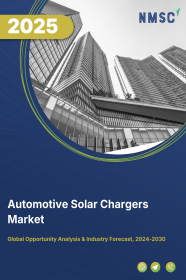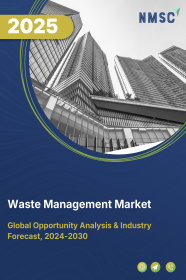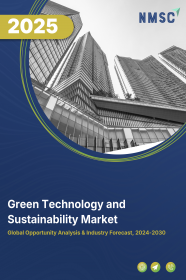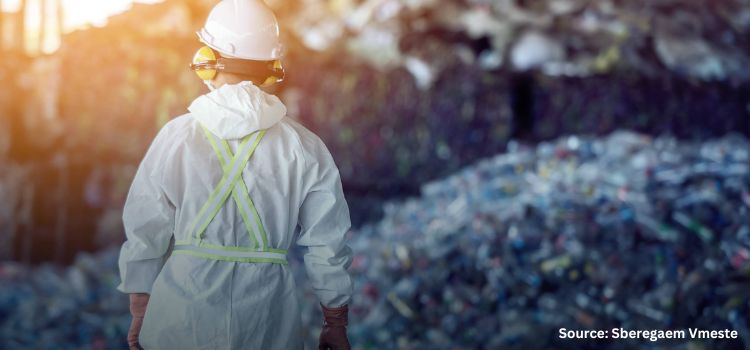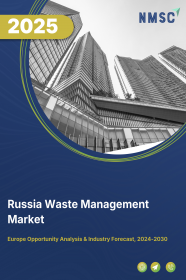
Russia Waste Management Market by Waste Type (Municipal Solid Waste (MSW) or Household, Industrial, and Commercial) and by Waste Treatment (Composting, Incineration, Controlled Landfill, Uncontrolled Landfill, Sanitary Landfill, Open Dump, and Recycling)– Opportunity Analysis and Industry Forecast, 2024 – 2030
Industry: Energy & Power | Publish Date: 17-Feb-2025 | No of Pages: 20 | No. of Tables: 82 | No. of Figures: 47 | Format: PDF | Report Code : EP1248
Russia Waste Management Market Overview
The Russia Waste Management Market size was valued at USD 7.04 billion in 2023, and is predicted to reach USD 8.91 billion by 2030, at a CAGR of 2.40% from 2024 to 2030.
The Russia waste management market involves a wide range of services and activities aimed at managing and mitigating the impact of waste generated by various sectors including residential, commercial, industrial, and healthcare. It includes the collection, transportation, processing, recycling, and disposal of waste materials in a manner that is environmentally responsible and sustainable. The market also involves the development and implementation of technologies and practices that promote waste reduction, resource recovery, and the safe handling of hazardous materials.
Key components of the waste reduction market include waste collection services, recycling facilities, waste-to-energy plants, landfill operations, and environmental consulting services. As awareness of environmental issues grows, the waste reduction market continues to expand, driven by growing population, technological advancements, and increasing public demand for sustainable waste solutions.
Increasing Waste Generation Fuels the Russia Waste Management Market Growth
The rise in waste generation is driving the growth of the waste management market. As populations grow and consumption patterns change, the volume of waste produced increases, necessitating more efficient and effective waste handling solutions. According to the latest report published by World Bank Group, Russia annually produces 55-60 million tons of municipal solid waste (MSW) with an average production of 400kg of waste per person per year. This surge in waste generation prompts the need for advanced waste processing technologies, improved recycling systems, and enhanced waste collection infrastructure, all of which contribute to the expansion of the waste recycling market.
Government Initiatives and Collaborations Propel the Russia Waste Management Market Expansion
The government's initiatives towards waste management are propelling the growth of the market. Programs aimed at reducing waste, increasing recycling rates, and promoting sustainable practices are fostering an environment conducive to market expansion. For example, in December 2023, Russia and Belarus are collaborating on several joint projects in waste reduction and recycling to develop efficient waste treatment infrastructure, boost recycling and secondary raw materials usage, and promote environmentally friendly goods and packaging. These efforts are driving the adoption of advanced waste-to-energy technologies and encouraging public and private sector collaboration, leading to a more robust and efficient waste processing infrastructure.
Underdeveloped Waste Processing Facilities and Limited Recycling Capabilities Hinder Market Growth
The lack of advanced waste processing facilities, coupled with limited recycling capabilities, significantly hampers the efficiency of waste management practices. These infrastructural gaps create bottlenecks in the proper handling, sorting, and disposal of waste materials, which not only contribute to environmental degradation but also limit the potential for resource recovery and sustainable recycling initiatives. As a result, the market's growth is stifled, with opportunities for innovation and expansion being hindered by these persistent challenges in waste management infrastructure.
The Adoption of Waste-To-Energy Technologies Creates Future Growth Opportunities in the Market
The adoption of waste-to-energy technologies such as incineration, anaerobic digestion, and gasification presents a significant growth opportunity for the waste management market as these technologies convert waste materials into usable energy, reducing landfill dependency and contributing to sustainable energy generation.
By transforming waste into a valuable resource, waste-to-energy solutions promote environmental sustainability and drive market expansion. This innovative approach aligns with global trends toward circular economy practices and offers economic benefits by generating energy from waste that creates a promising avenue for growth of the waste reduction sector.
Competitive Landscape
The promising players operating in Russia waste management market includes EcoPartners Group, REO, Holcim, ANDRITZ, Cross Wrap, Waste Management Star, METRO, Veolia Environnement S.A., Binology LLC, Ecosilico, and others.
Russia Waste Management Market Key Segments
By Waste Type
-
Municipal Solid Waste (MSW) or Household
-
Food
-
Paper and Cardboard
-
Plastic
-
Glass
-
Metal
-
Others
-
-
Industrial
-
Manufacturing Waste
-
Construction & Demolition Waste
-
Agriculture Waste
-
Other Industrial waste
-
-
Commercial
By Waste Treatment
-
Composting
-
Incineration
-
Controlled Landfill
-
Uncontrolled Landfill
-
Sanitary Landfill
-
Open Dump
-
Recycling
Key Players
-
EcoPartners Group
-
REO
-
Holcim
-
ANDRITZ
-
Cross Wrap
-
Waste Management Star
-
METRO
-
Veolia Environnement S.A.
-
Binology LLC
-
Ecosilico
REPORT SCOPE AND SEGMENTATION:
|
Parameters |
Details |
|
Market Size Value in 2023 |
USD 7.04 billion |
|
Revenue Forecast in 2030 |
USD 8.91 billion |
|
Value Growth Rate |
CAGR of 2.40% from 2024 to 2030 |
|
Analysis Period |
2023–2030 |
|
Base Year Considered |
2023 |
|
Forecast Period |
2024–2030 |
|
Market Size Estimation |
Billion (USD) |
|
Growth Factors |
|
|
Companies Profiled |
10 |
|
Customization Scope |
Free customization (equivalent up to 80 working hours of analysts) after purchase. Addition or alteration to country, regional, and segment scope. |
|
Pricing and Purchase Options |
Avail customized purchase options to meet your exact research needs. |

















 Speak to Our Analyst
Speak to Our Analyst



